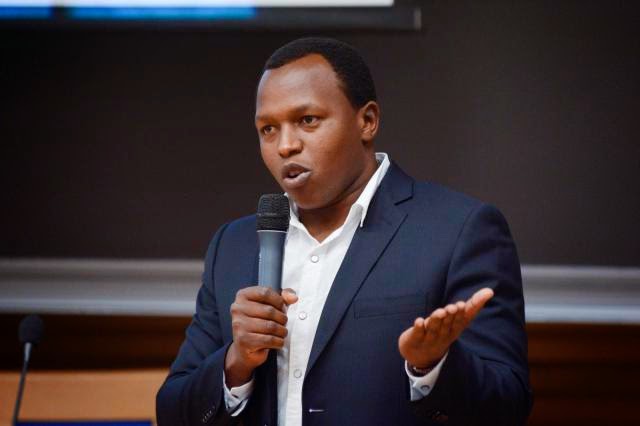 There is serious agriculture going on in Facebook. At least among Kenyan farmers, there is those that have found Facebook as the place to research and gather knowledge for application in their agricultural related ventures. Others are finding prices of inputs and produce on Facebook groups. Can one be practicing agriculture on Facebook? I think research and access to relevant knowledge for application in one’s agricultural venture is part and parcel of the venture’s activities; hence there can be agricultural practice on Facebook. I think this is one aspect of information technology driven innovation that Agriculture is facing in emerging economies. As I once wrote earlier last year, these innovations may just matter.
There is serious agriculture going on in Facebook. At least among Kenyan farmers, there is those that have found Facebook as the place to research and gather knowledge for application in their agricultural related ventures. Others are finding prices of inputs and produce on Facebook groups. Can one be practicing agriculture on Facebook? I think research and access to relevant knowledge for application in one’s agricultural venture is part and parcel of the venture’s activities; hence there can be agricultural practice on Facebook. I think this is one aspect of information technology driven innovation that Agriculture is facing in emerging economies. As I once wrote earlier last year, these innovations may just matter.
Here is my list of the top 10 Facebook Groups covering agricultural interests that involve Kenyans by membership size.
Rank
|
Facebook Group Name
|
Size of membership
(March 13th, 2015)
|
1
|
34,360
| |
2
|
20,719
| |
3
|
14,466
| |
4
|
8,308
| |
5
|
7,676
| |
6
|
5,373
| |
7
|
3,951
| |
8
|
3,730
| |
19
|
2,239
| |
10
|
2,018
|
In the list we see an apparent trend of groups forming around a particular agricultural sub-sector such as poultry, dairy, rabbit and pig production. Incidentally, majority of the groups in the list also seem to have a specific livestock focus. This could be resulting from my interest bias or there could be something about the livestock sector that renders itself better to this online phenomenon than crop cultivation.
 |
| Joseph Macharia - Founder of Mkulima Young |
Omission of Mkulima Young in the list above is deliberate. Their Facebook page has seen phenomenal growth in the last two years. I note it separately as an organizational page rather than an interest group. Also very noteworthy is Mkulima Young’s advancement towards creating their own web platform for not only knowledge exchange on agricultural practice but also a agricultural commodities market place. They also have an active twitter and youtube channel. It appears to be run as an outright business rather than a special interest group. Apart from Mfarm's and Shamba Shape up's, I have not come across comparable pages built around existing Kenya focused farming and agriculture related enterprises with “page likes” above five thousand. Mkulima young has forty one thousand “page likes” as at mid March 2015.
The Farming Kenya group appears to follow Mkulima young’s path of creating their own independent website. Their website is http://farmingkenya.org where only signed up
members are allowed to contribute content. Guests are allowed to view content. The website has sections for questions and answers, forums, blogs and photo sharing. Membership in this website requires a special signup process independent of Facebook’s.
 |
| FarmingKenya.Org Logo |
Agriculture focused Facebook groups, pages and related websites seem to have a promise for providing the youth with a platform for exchanging best practices in agriculture. They also appear to be an increasingly popular mechanism for market price discovery as regards agricultural inputs and produce. It will be interesting to see how the landscape unravels as agriculture becomes a more youthful economic activity while the youth have greater access to the internet and internet enabled phones.
Since the above list of top agriculture Facebook groups is my first version, I may have omitted an important one with significant membership. I welcome suggestions for additional entries in the list.
Comments
Post a Comment